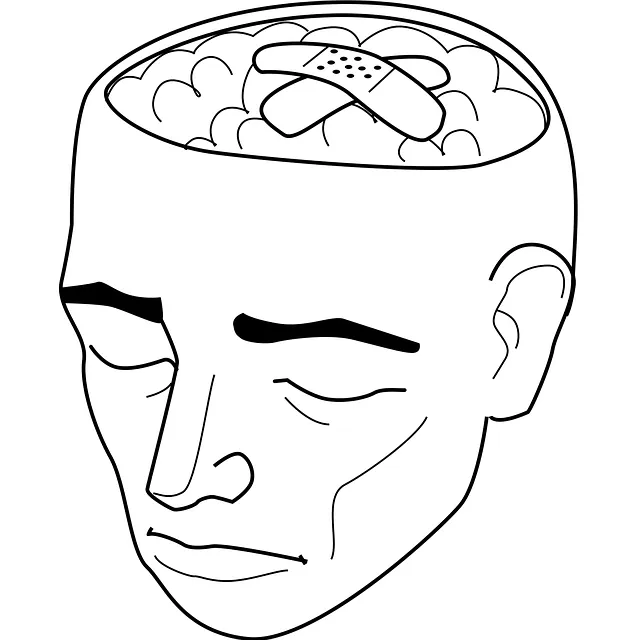Kaiser Permanente mental health Denver is revolutionizing diagnosis accuracy through comprehensive training, evidence-based practices, digital tools, and community outreach. Their multi-faceted approach aims to mitigate misdiagnoses due to provider burnout or patient barriers like stigma, enhancing personalized care and improving patient outcomes. Advanced technologies and well-being promotion modules empower professionals to recognize complex cases, leading to better mental wellness outcomes for both patients and providers in the broader Denver community. This strategy not only improves individual care but also promotes mental health awareness, encouraging open conversations and earlier interventions for improved quality of life.
Mental illness diagnosis accuracy is paramount in effective patient care, especially at Kaiser Permanente Denver, a leading healthcare provider. This article delves into the critical need for improved diagnostic methods, highlighting current challenges faced by mental health professionals at Kaiser Permanente Denver. We explore innovative strategies to enhance tools and training, focusing on advanced techniques and resources. Ultimately, this piece discusses the significant impact of enhanced diagnosis accuracy, aiming to revolutionize mental health services at Kaiser Permanente Denver and beyond.
- Understanding the Significance of Diagnosis Accuracy in Mental Health Care at Kaiser Permanente Denver
- Current Challenges and Gaps in Diagnosing Mental Illness: A Kaiser Perspective
- Innovative Strategies to Enhance Diagnostic Tools and Training for Mental Health Professionals
- The Impact and Benefits of Improved Diagnosis Accuracy: A Look Ahead for Kaiser Permanente Denver's Mental Health Services
Understanding the Significance of Diagnosis Accuracy in Mental Health Care at Kaiser Permanente Denver

At Kaiser Permanente Denver, diagnosis accuracy is a cornerstone of their mental health care approach. Ensuring precise and timely diagnoses plays a pivotal role in delivering effective treatment plans for patients navigating complex mental health conditions. With a focus on mental wellness and mental health awareness, the organization prioritizes comprehensive evaluations to avoid misdiagnoses that can stem from burnout or work-related stress among healthcare providers. This strategic emphasis is crucial, as accurate diagnoses facilitate personalized care, enhance patient outcomes, and ultimately improve overall Kaiser Permanente mental health Denver services.
By implementing robust training programs and adopting evidence-based practices, Kaiser Permanente Denver aims to mitigate potential biases and subjective interpretations that can impact diagnosis accuracy. These burnout prevention strategies for healthcare providers not only benefit the professionals but also ensure patients receive the most appropriate care. This holistic approach underscores the organization’s commitment to transforming lives by addressing mental health challenges effectively and efficiently.
Current Challenges and Gaps in Diagnosing Mental Illness: A Kaiser Perspective

The current landscape of mental illness diagnosis presents several challenges and gaps, particularly within large healthcare organizations like Kaiser Permanente in Denver. Despite advancements in research and awareness, misdiagnosis rates remain alarmingly high, often due to the complex nature of mental health conditions and the diverse presentations they can take. This is further complicated by patient barriers such as stigma, fear of judgment, or lack of access to quality care.
Kaiser’s efforts to improve diagnosis accuracy involve a multi-faceted approach. These include enhancing clinical training for healthcare providers to ensure they stay up-to-date with the latest research and treatment guidelines, implementing digital tools that aid in assessment and early intervention, and promoting community outreach programs that encourage mental wellness journaling exercises as a means of self-assessment and early detection. By addressing these challenges head-on, Kaiser Permanente aims to revolutionize mental health care, ensuring more accurate diagnoses and improved patient outcomes for the Denver community and beyond.
Innovative Strategies to Enhance Diagnostic Tools and Training for Mental Health Professionals

Mental health professionals at Kaiser Permanente mental health Denver are at the forefront of revolutionizing diagnostic practices. They are leveraging innovative strategies to enhance traditional tools, incorporating advanced technologies and research-backed methods for more accurate assessments. This includes integrating digital assessment platforms that allow for comprehensive data collection, enabling healthcare providers to make informed decisions based on detailed patient profiles. By utilizing these modern techniques, professionals can better identify subtle symptoms and nuances often overlooked in conventional diagnostic processes.
Moreover, training programs are being enhanced to include cutting-edge educational modules focused on emotional well-being promotion techniques and burnout prevention strategies for healthcare providers. These initiatives aim to equip mental health experts with the skills to recognize complex cases and tailor treatment plans accordingly. With a focus on continuous learning and staying abreast of emerging research, Kaiser Permanente’s commitment to these efforts ensures that both patients and professionals benefit from improved diagnostic accuracy and enhanced mental wellness outcomes.
The Impact and Benefits of Improved Diagnosis Accuracy: A Look Ahead for Kaiser Permanente Denver's Mental Health Services

Improved diagnosis accuracy in mental health can significantly transform the care experience at Kaiser Permanente Denver’s Mental Health Services. More precise assessments lead to tailored treatment plans, enhancing patient outcomes and satisfaction. For instance, accurate identification of conditions like anxiety disorders or depression can facilitate targeted interventions, such as cognitive-behavioral therapy or medication management, ultimately contributing to better anxiety relief and self-esteem improvement.
This advancement not only benefits individual patients but also fosters mental health awareness within the community. By reducing misdiagnoses and misunderstandings, healthcare providers can educate both patients and their support networks more effectively. Such efforts have the potential to break down stigma associated with mental illness, encouraging open conversations and earlier interventions. This proactive approach ensures that individuals receive appropriate care at an early stage, leading to improved quality of life and well-being.
Accurate mental illness diagnoses are paramount in providing effective treatment, and Kaiser Permanente Denver has made significant strides in this area. By addressing current challenges through innovative strategies, such as enhanced training and improved diagnostic tools, the organization ensures that its mental health professionals can deliver higher-quality care to patients in Denver. This focused effort not only benefits individuals receiving treatment but also contributes to the overall improvement of mental health services within Kaiser Permanente.






